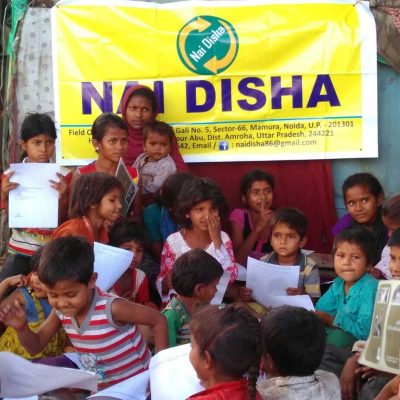Programs
Nai Disha is committed to providing basic education and healthcare to underprivileged children. We believes that whether you are addressing healthcare, poverty, population control, unemployment or human rights, there’s no better place to start than in the corridors of education.
Education is both the means as well as the end to a better life; means, because it empowers an individual to earn his/her livelihood and the end because it increases one’s awareness on a range of issues – from healthcare to appropriate social behavior to understanding one’s rights, and in the process evolve as a better citizen.
Why Waste picker Children?
Waste picking is treated as one of the most occupations in urban India. Consequently, those who pick waste are greatly discriminated against.
Children who pick waste are unable to find any other means to support themselves and, often, their siblings. Walking on the road, picking up waste, they are bullied to clean up private homes, beaten by municipal sweepers and police personnel and abused by the general public, even sexually assaulted. Most people see them as greedy thieves, not as disadvantaged and poor children struggling to survive.
We study found that 84% of these children are severely anaemic, have worms and suffer from recurring fevers and multiple injuries. Education is a particular challenge. Even if they do join a government school, many drops out, frequently because their government paid teachers discriminate against them.

